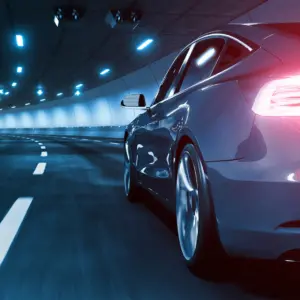As of June 21, 2018, new Canadian laws impose stiff penalties for driving under the influence of cannabis and other drugs, giving police officers lots of new powers to catch high drivers, and make sure they pay the price.
- Introduction
- Federal Penalties
- Ontario Penalties
- Tools For Police to Catch High Drivers
- Other Ways to Get in Trouble
- How Much Can I Smoke? How long Do I Have to Wait After Smoking?
1. Introduction
According to a University of Western Ontario study, drivers killed in a car accident in 2014 were more likely to have drugs in their system (42%) than alcohol (29%). The most common drug found was cannabis. In a legal weed environment, this problem could get much worse. It seems both federal and provincial governments have acknowledged the problem, and taken steps to discourage weed behind the wheel.
2. Federal penalties
Just in case you thought that the federal government that campaigned on legalizing pot was going to take it easy on drivers who indulge in cannabis, think again. The Canadian penalties for driving high are very similar to those for driving drunk.

| Min penalty | Max penalty | ||
|---|---|---|---|
| 2-5 ng of THC | None | $1,000 fine | |
| 5+ ng of THC | 1st Offence | $1,000 fine | 5 yrs prison |
| 2nd Offence | 30 Days prison | 5 yrs prison | |
| 3rd Offence | 120 Days prison | 5 yrs prison | |
| Causing Harm | Same as above | 10yrs prison | |
| Causing Death | Same as above | Life in prison | |
The federal legislation also has a combination limit that can hit you with the same penalties above if you have both cannabis and alcohol in your blood.
3. Ontario penalties
Provinces have additional penalties for driving under the influence of cannabis that also mirror drunk driving laws. In Ontario, penalties apply even if you aren’t over the legal limit of 5 nanograms (ng) per millilitre of blood.
A) Roadside penalties
If you are caught with 2 or more nanograms of THC per ml of blood, the following penalties apply immediately (in addition to federal penalties):

| 1st offence |
|
|---|---|
| 2nd offence |
|
| 3rd offence |
|
| 1st offence |
|
|---|---|
| 2nd offence |
|
| 3rd offence |
|
B) If you are convicted
If you are convicted of driving with more than 5 ng of THC per ml of blood, the following penalties apply (in addition to federal penalties):
| 1st offence |
|
|---|---|
| 2nd offence |
|
| 3rd offence |
|
4. Tools for police to catch high drivers
Breathalyzer tests have been available to police for decades, and have been incredibly effective tools to help catch drunk drivers. Until recently, catching drug-impaired drivers was much more difficult.
Police have the following tools to identify drug-impaired drivers:
- If they suspect you are impaired, they can demand that you take a roadside saliva test that accurately measures THC in your system.
- If you fail a roadside test, they can demand further testing at the station, including blood testing and drug recognition and evaluation (DRE).
- Police officers trained in DRE are presumed to be expert witnesses in court.
- If an officer recognizes you are impaired and your blood tests positive for THC, they don’t need to prove that the THC was causing the impairment.
5. Other ways to get in trouble
The penalties above require you to fail a blood test, but there are other ways that impaired driving laws can bite you.
- If you fail a roadside sobriety test (“walk a straight line” etc.), you could be subject to some of the above penalties, and further testing.
- If you refuse to provide a saliva, breath or blood sample to police, you could be subject to all of the above penalties.
- If you are 21 or younger, if you have a learner’s permit (G1, G2, M1, M2 etc.), or if you are a commercial driver, the above penalties could apply if any THC is found in your blood (even below 2 ng/ml).
6. How much can I smoke? How long do I have to wait after smoking?
In terms of how much cannabis you need to ingest in order to test positive for THC, it’s not altogether clear, however some experts have suggested that even one puff of a joint could lead to a reading over 2 nanograms and because THC is fat-soluble, it could show up in a blood test weeks later. Saliva tests won’t pick it up after 6 to 8 hours.
Medical cannabis users
Users of cannabis that have a prescription are not subject to the same restrictions in terms of blood and saliva testing, but can still be charged with impaired driving if there is evidence that they are impaired (e.g., slurred speech, erratic driving, failing a roadside sobriety test).
Disclaimer: The information above is for general purposes and does not constitute legal advice. Be sure to check with the Ontario Ministry of Transportation and the Government of Canada for up to date information on the use of cannabis and other drugs while driving.
Looking for car insurance?
Speak with a Mitch Insurance broker today to get a quote on Ontario auto insurance. Learn more >
Call now
1-800-731-2228







